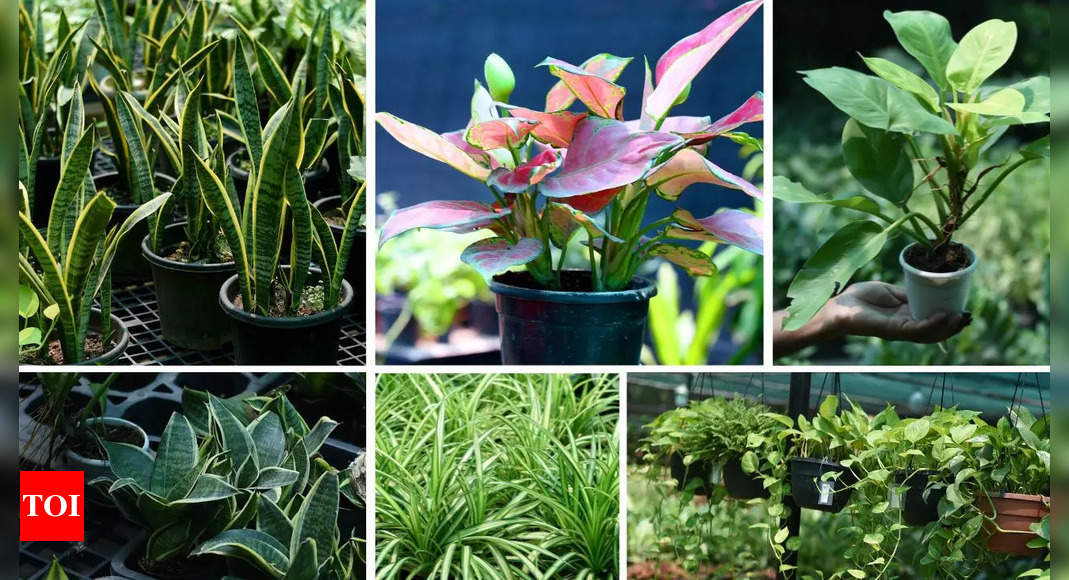Having a large terrace garden, expansive lawns, or a backyard is considered a luxury in Delhi. However, incorporating a touch of nature indoors with vibrant and healthy plants is always a viable alternative. Indoor plants not only bring joy but also aid in managing stress, serving as wonderful companions, according to plant enthusiasts and experts.
Farial Sabrina emphasizes that there are no plants specifically designated as indoor plants. She states, “All plants that thrive in shaded environments can be adapted to indoor settings. When transitioning plants indoors, it is essential to provide them with the necessary care, including filtered light, proper watering, adequate nutrients, and ventilation.”
One of the primary reasons for the surge in home gardening is the aesthetic appeal it offers.
‘Caring for indoor plants facilitates personal growth’
Caring for plants can be a transformative experience, as shared by Vinayak Garg, the founder of Lazy Gardener. He explains, “The increasing trend of home gardening is driven by aesthetics and the desire for mental well-being and companionship. Engaging in plant care nurtures a deeper connection with nature, fostering personal development.” Fariyal adds that beyond enhancing the visual appeal of your space, plants contribute to personal growth.
Surrounding oneself with plants provides a sense of comfort. Many individuals, like myself, who grew up in rural areas and later relocated to urban settings, have felt a yearning to reconnect with nature over time. This sentiment was particularly pronounced during the COVID-19 pandemic, where the desire to appreciate and engage with the natural world intensified.
Farial Sabrina, the founder of the garden center Planterie, notes, “Since the pandemic, indoor gardening has emerged as a therapeutic hobby for many, offering solace amidst stress and anxiety. The longing to reconnect with nature became more pronounced when we were confined indoors. The trend of gifting succulents and leafy plants for various occasions, from birthdays to housewarmings, continues to gain popularity.”
‘Understanding your plants’ needs’
While there is no universal formula for plant care, it is essential to consider the following aspects:
- Familiarize yourself with your space and position your potted plants near artificial light sources.
- Allow your plants occasional exposure to natural light by placing them outdoors for a few hours every few days.
- Water your plants only when the soil is dry to prevent root damage from overwatering.
- Each plant has unique watering and soil requirements, so monitor them closely.
- Avoid frequent relocation of plants, as they prefer stability in their environment.
Observing leaves changing colors, feeling their textures, or witnessing a bud blossom into a flower can evoke joy and provide solace to those in need of healing.
Mamta Thorat, a botanist and psychologist, emphasizes the therapeutic benefits of indoor plants, highlighting their role in promoting emotional well-being.
Popular indoor plant varieties
- Philodendrons and Pothos thrive indoors with filtered light.
- ZZ plants and Monstera are adaptable to varying light and water conditions.
- Aglaonema varieties add color and flourish in low-light environments.
- Dwarf palms thrive in bright sunlight or indirect filtered light.
- Schefflera requires minimal light.
- Office spaces often accommodate indoor plants well under artificial white light. Consider Syngonium, Money Plant, or Crotons for your workspace.
Insights provided by Vinayak Garg, Farial Sabrina, and Bhagat, a nurseryman, shed light on the diverse range of indoor plant options available.
In urban settings characterized by concrete landscapes and limited space, introducing a money plant or an air-purifying plant at home can significantly enhance the ambiance. Plant enthusiasts recommend incorporating indoor plants to infuse freshness into your living space and life. The act of observing leaves, textures, and blossoming buds can bring joy and healing to individuals in need. A single plant in your room or workspace can have a calming effect, promoting emotional well-being.
‘Tending to indoor plants facilitates personal growth’

